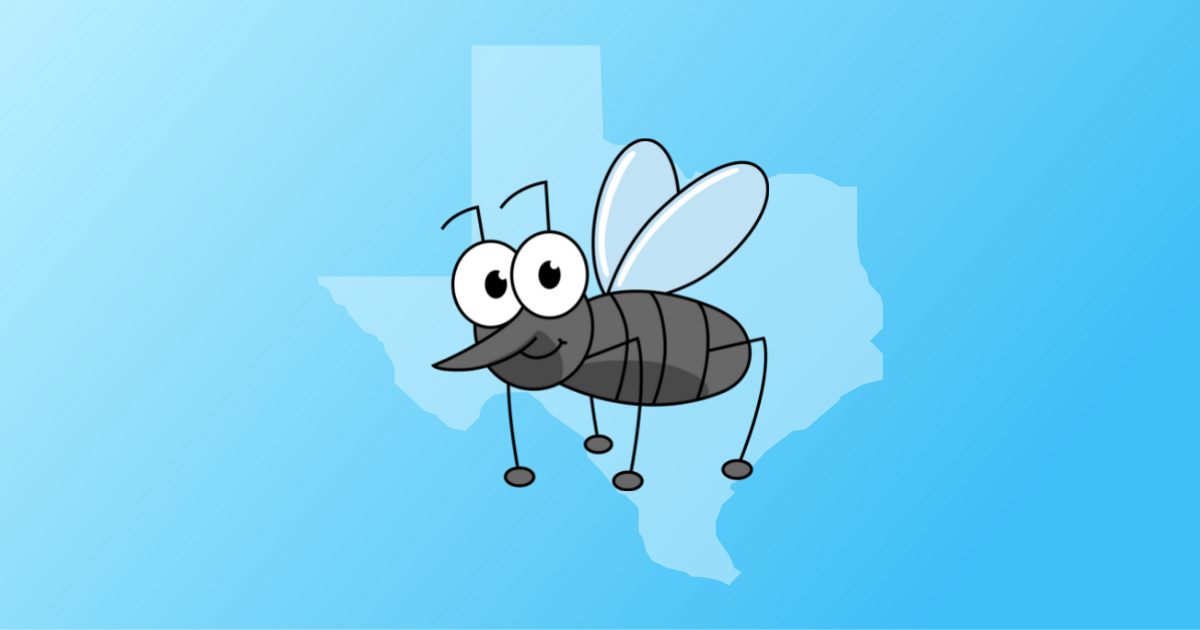Right now, the release of millions of genetically-engineered mosquitoes in the Florida Keys is sparking controversy. The trial, which seeks to curb the population of the Aedes aegypti mosquito, is the first of its kind in the United States. Reports have suggested that Texas could be next.
Aedes aegypti carries a number of diseases, including dengue fever, yellow fever, and the Zika virus. You may remember Zika from the scare in 2016 and the virus can cause birth defects if it infects pregnant women. To deal with Aedes aegypti, the British biotech firm Oxitec has developed a genetically-modified mosquito with a special gene that only allows male offspring to survive into adulthood. Male mosquitoes don’t bite humans and spread diseases as they feed off flower nectar, it’s the females that feed on blood in order to grow their eggs. By killing off females but letting the males survive, Oxitec’s approach allows the male offspring to mate with more females and spread the gene further. This can significantly reduce the population of Aedes aegypti over time.
The release of these mosquitoes in Florida has caused concern amongst local residents and many Texans will want to know if they are next. Yet despite sensational media reports about genetically-engineered mosquitoes coming to the Lone Star State, the reality is that this will not occur anytime soon. While it is true that the EPA approved the use of Oxitec’s strain of Aedes aegypti in Harris County last year, state and local authorities would have to approve their use and work out a deal with Oxitec before anything actually happened.
The Signal recently reached out to Harris County Public Health and they assured us that there are currently no plans to release genetically-modified mosquitoes in Houston.
“At this time there are no agreements or plans in place to move forward with the Oxitec project,” HCPH said in a statement. “While we have had discussions with Oxitec previously about a potential partnership with Harris County Public Health, those discussions were paused in 2019.” HCPH also added that while they are still in contact with Oxitec, their current focus is on dealing with COVID-19.
If Texas were to receive these mosquitoes in the future, it could actually be a very good thing. Mosquitoes and the diseases they carry are a problem in Texas, which is home to 85 species of mosquito. Officials in North Texas have recently issued warnings about the onset of West Nile Virus season, which could be particularly dangerous this year.
Furthermore, the use of genetic engineering to curb mosquito populations is hardly an untested proposition. Oxitec has already conducted field trials with genetically-engineered Aedes aegypti in Malaysia, Brazil and the Cayman Islands, and the results were an 80-95 percent reduction in mosquito populations and a 91 percent decline in dengue fever cases. The public is often fearful of genetically modified organisms, but the reality is that these fears are overblown.
It is true that modifying the genomes of species can lead to unintended consequences, although this is actually less of a risk with genetic engineering than it is with traditional breeding methods. However, by the time Texas gets anywhere close to actually deploying these mosquitoes, it will have data not just from abroad but also from the current project in Florida. If the trials in Florida prove to be successful, it will be another reason for Texas to take a serious look at using genetically-engineered mosquitoe
William serves as the Washington Correspondent for the Texas Signal, where he primarily writes about Congress and other federal issues that affect Texas. A graduate of Colorado College, William has worked on Democratic campaigns in Texas, Colorado, and North Carolina. He is an internet meme expert.





